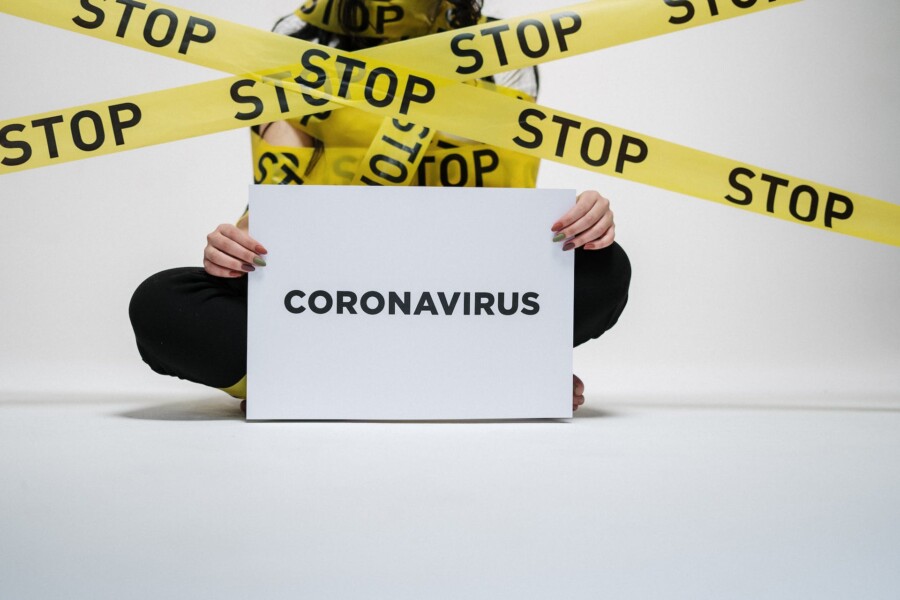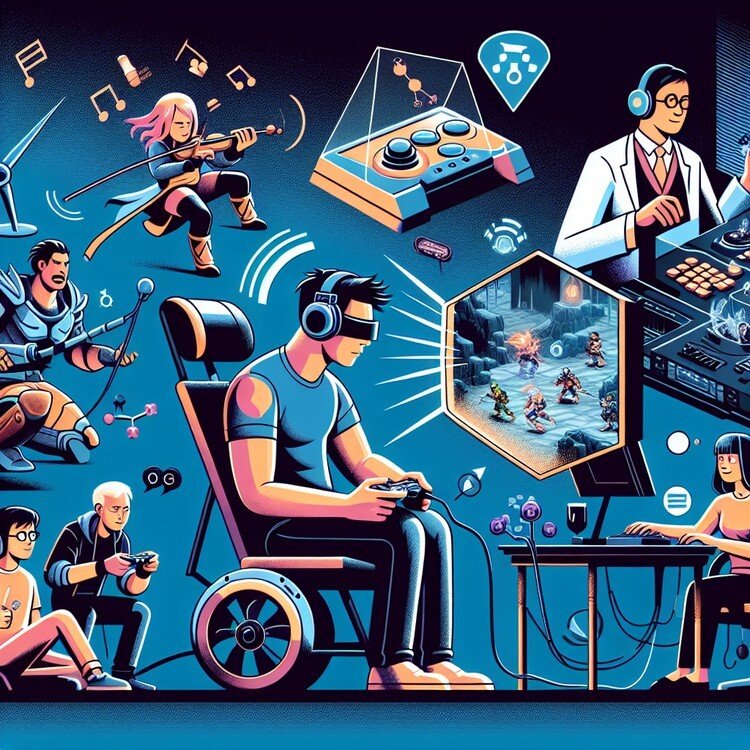Many people in the UK did not get all their shots to stop them from getting very sick from Covid-19. Doctors looked at health records and saw that not enough people got their shots, especially young people. If more people had gotten their shots, many would not have had to go to the hospital. The doctors say looking at everyone’s health records can help us learn about other sicknesses too.
In some parts of the UK, more people did not get their shots than in other parts. If everyone had gotten their shots, fewer people would have gotten very sick and gone to the hospital. Older people who did not get all their shots got sicker than those who did. A smart doctor said that shots are very important to keep people safe. The doctors found out that young people, men, poor people, and people from different places in the world did not get all their shots. They think that looking at health records can help us fight other sicknesses too.
Original news source: Covid jab skipped by 44%, entire UK study finds (BBC)
🎧 Listen:
Slow
Normal
Fast
📖 Vocabulary:
| 1 | doctors | People who help you when you are sick |
| 2 | health | How your body feels, good or not good |
| 3 | records | Pieces of paper or computer stuff that tell about you |
| 4 | hospital | A big house where doctors help sick people get better |
| 5 | important | Something that you really need to have or do |
| 6 | learn | To get new things in your head by studying or watching |
| 7 | sicknesses | When your body feels bad, like a cold or a tummy ache |
| 8 | smart | When someone knows a lot of things |
| 9 | fight | To try very hard to stop something bad |
| 10 | different | Not the same as something else |
Group or Classroom Activities
Warm-up Activities:
– Charades
Instructions: Divide the class into small groups. Give each group a card with a word or phrase related to the article (e.g. Covid-19, shots, hospital). One person from each group will act out the word or phrase without speaking, while the rest of the group tries to guess what it is. The first group to correctly guess the word or phrase gets a point. Repeat with different words or phrases.
– News Summary
Instructions: In pairs, students take turns summarizing the main points of the article to their partner. They should try to include important details such as who, what, when, where, and why. After both partners have had a chance to summarize, they can compare their summaries and discuss any differences or similarities.
– Opinion Poll
Instructions: Create a simple opinion poll based on the article. For example, ask students “Do you think it is important to get all your shots to stay healthy?” or “Do you think looking at health records can help us learn about other sicknesses?” Have students answer the poll by raising their hands or using a show of fingers. Then, ask a few students to explain their answers and encourage a brief class discussion.
– Vocabulary Pictionary
Instructions: Write down vocabulary words from the article on separate cards or pieces of paper (e.g. shots, hospital, sickness). Divide the class into two teams. One person from each team takes turns picking a word and drawing it on the board, while their team tries to guess what the word is. The team that correctly guesses the most words wins.
– Think-Pair-Share
Instructions: Have students think individually about the following question: “Why do you think some people did not get all their shots?” Give them a few minutes to come up with their own ideas. Then, pair them up and have them share their thoughts with their partner. Afterward, ask a few pairs to share their ideas with the whole class and facilitate a brief discussion.
🤔 Comprehension Questions:
1. What did the doctors look at to see if people got their shots?
2. Why is it important for people to get their shots?
3. Who did the doctors find out did not get all their shots?
4. What did the doctors say looking at health records can help us learn about?
5. What would happen if everyone got their shots?
6. Who got sicker, older people who got their shots or older people who didn’t get their shots?
7. What did the doctors think looking at health records can help us do?
Go to answers ⇩
🎧✍️ Listen and Fill in the Gaps:
Many people in the UK did not get all their shots to (1)______ them from getting very sick from Covid-19. Doctors looked at health (2)______ and saw that not enough people got their shots, especially young people. If more people had gotten their shots, (3)______ would not have had to go to the hospital. The doctors say looking at everyone’s health records can help us learn about other sicknesses too.
In some (4)______ of the UK, more people did not get their shots than in other parts. If everyone had gotten their shots, fewer people would have gotten very sick and gone to the hospital. Older people who did not get all their shots got sicker than those who did. A smart (5)______ said that shots are very (6)______ to keep people safe. The doctors found out that young people, men, poor people, and people from different places in the world did not get all their shots. They (7)______ that looking at health records can help us (8)______ other sicknesses too.
Go to answers ⇩
💬 Discussion Questions:
Students can ask a partner these questions, or discuss them as a group.
1. What are shots?
2. How would you feel if you had to go to the hospital because you got very sick?
3. Do you like going to the hospital? Why or why not?
4. Do you think it’s important to get shots to stay safe?
5. Why do you think some people didn’t get all their shots?
6. How would you feel if you didn’t get all your shots and got very sick?
7. Do you know any sicknesses that shots can help prevent?
8. Why do you think the doctors looked at everyone’s health records?
9. How would you feel if you found out that more people in your area didn’t get their shots?
10. Do you know anyone who didn’t get all their shots? Why do you think they didn’t?
11. How would you feel if you were a doctor and saw that many people didn’t get their shots?
12. Do you think looking at health records can help us fight other sicknesses? Why or why not?
Individual Activities
📖💭 Vocabulary Meanings:
Match each word to its meaning.
Words:
1. doctors
2. health
3. records
4. hospital
5. important
6. learn
7. sicknesses
8. smart
9. fight
10. different
Meanings:
(A) When your body feels bad, like a cold or a tummy ache
(B) A big house where doctors help sick people get better
(C) Not the same as something else
(D) To get new things in your head by studying or watching
(E) How your body feels, good or not good
(F) To try very hard to stop something bad
(G) People who help you when you are sick
(H) Something that you really need to have or do
(I) Pieces of paper or computer stuff that tell about you
(J) When someone knows a lot of things
Go to answers ⇩
🔡 Multiple Choice Questions:
1. What did doctors look at to see if people got their shots?
(a) school records
(b) shopping lists
(c) health records
(d) weather reports
2. Who did not get all their shots to stop them from getting very sick from Covid-19?
(a) many people in the US
(b) many people in the UK
(c) many people in France
(d) many people in China
3. What did the doctors say looking at everyone’s health records can help us learn about?
(a) sports
(b) other sicknesses
(c) cooking
(d) animals
4. In which parts of the UK did more people not get their shots?
(a) some parts
(b) all parts
(c) no parts
(d) every part
5. What would have happened if everyone had gotten their shots?
(a) fewer people would have gotten very sick and gone to the hospital
(b) more people would have gotten very sick and gone to the hospital
(c) the weather would have been better
(d) everyone would have been happy
6. Who got sicker, older people who did not get all their shots or older people who did?
(a) older people who did
(b) younger people who did not get all their shots
(c) older people who did not get all their shots
(d) younger people who did
7. What did the doctors find out about young people, men, poor people, and people from different places in the world?
(a) they got all their shots
(b) they went to the hospital
(c) they stayed at home
(d) they did not get all their shots
8. What did the doctors think looking at health records can help us fight?
(a) boredom
(b) hunger
(c) sleepiness
(d) other sicknesses
Go to answers ⇩
🕵️ True or False Questions:
1. Shots are not very important to keep people safe.
2. Looking at everyone’s health records can help us learn about other sicknesses too.
3. If everyone had not gotten their shots, fewer people would have gotten very sick and gone to the hospital.
4. If more people had gotten their shots, many would not have had to go to the hospital.
5. Doctors did not look at health records and saw that not enough people got their shots, especially young people.
6. Older people who did not get all their shots did not get sicker than those who did.
7. In some parts of the UK, more people did not get their shots than in other parts.
8. Many people in the UK did not get their shots to stop them from getting very sick from Covid-19.
Go to answers ⇩
📝 Write a Summary:
Write a summary of this news article in two sentences.
Check your writing now with the best free AI for English writing!
Writing Questions:
Answer the following questions. Write as much as you can for each answer.
Check your answers with our free English writing assistant!
1. What did doctors find when they looked at health records in the UK?
2. Why is it important for people to get their shots?
3. Who are some of the people that did not get all their shots?
4. What would happen if more people got their shots?
5. How can looking at health records help us fight other sicknesses?
✅ Answers
🤔✅ Comprehension Question Answers:
1. What did the doctors look at to see if people got their shots?
The doctors looked at health records to see if people got their shots.
2. Why is it important for people to get their shots?
It is important for people to get their shots to stay safe and not get very sick.
3. Who did the doctors find out did not get all their shots?
The doctors found out that young people, men, poor people, and people from different places in the world did not get all their shots.
4. What did the doctors say looking at health records can help us learn about?
The doctors said looking at health records can help us learn about other sicknesses too.
5. What would happen if everyone got their shots?
If everyone got their shots, fewer people would get very sick and go to the hospital.
6. Who got sicker, older people who got their shots or older people who didn’t get their shots?
Older people who didn’t get their shots got sicker.
7. What did the doctors think looking at health records can help us do?
The doctors think looking at health records can help us fight other sicknesses too.
Go back to questions ⇧
🎧✍️✅ Listen and Fill in the Gaps Answers:
(1) stop
(2) records
(3) many
(4) parts
(5) doctor
(6) important
(7) think
(8) fight
Go back to questions ⇧
📖💭✅ Vocabulary Meanings Answers:
1. doctors
Answer: (G) People who help you when you are sick
2. health
Answer: (E) How your body feels, good or not good
3. records
Answer: (I) Pieces of paper or computer stuff that tell about you
4. hospital
Answer: (B) A big house where doctors help sick people get better
5. important
Answer: (H) Something that you really need to have or do
6. learn
Answer: (D) To get new things in your head by studying or watching
7. sicknesses
Answer: (A) When your body feels bad, like a cold or a tummy ache
8. smart
Answer: (J) When someone knows a lot of things
9. fight
Answer: (F) To try very hard to stop something bad
10. different
Answer: (C) Not the same as something else
Go back to questions ⇧
🔡✅ Multiple Choice Answers:
1. What did doctors look at to see if people got their shots?
Answer: (c) health records
2. Who did not get all their shots to stop them from getting very sick from Covid-19?
Answer: (b) many people in the UK
3. What did the doctors say looking at everyone’s health records can help us learn about?
Answer: (b) other sicknesses
4. In which parts of the UK did more people not get their shots?
Answer: (a) some parts
5. What would have happened if everyone had gotten their shots?
Answer: (a) fewer people would have gotten very sick and gone to the hospital
6. Who got sicker, older people who did not get all their shots or older people who did?
Answer: (c) older people who did not get all their shots
7. What did the doctors find out about young people, men, poor people, and people from different places in the world?
Answer: (d) they did not get all their shots
8. What did the doctors think looking at health records can help us fight?
Answer: (d) other sicknesses
Go back to questions ⇧
🕵️✅ True or False Answers:
1. Shots are not very important to keep people safe. (Answer: False)
2. Looking at everyone’s health records can help us learn about other sicknesses too. (Answer: True)
3. If everyone had not gotten their shots, fewer people would have gotten very sick and gone to the hospital. (Answer: False)
4. If more people had gotten their shots, many would not have had to go to the hospital. (Answer: True)
5. Doctors did not look at health records and saw that not enough people got their shots, especially young people. (Answer: False)
6. Older people who did not get all their shots did not get sicker than those who did. (Answer: False)
7. In some parts of the UK, more people did not get their shots than in other parts. (Answer: True)
8. Many people in the UK did not get their shots to stop them from getting very sick from Covid-19. (Answer: True)
Go back to questions ⇧















